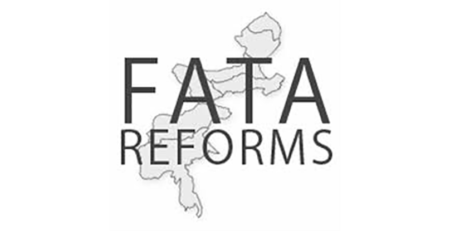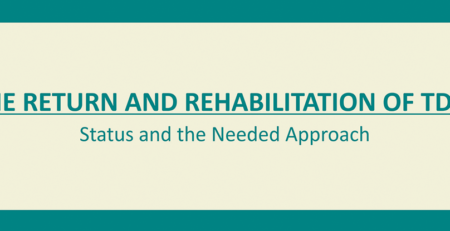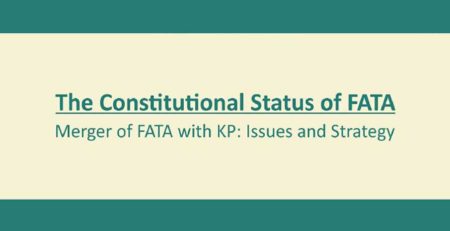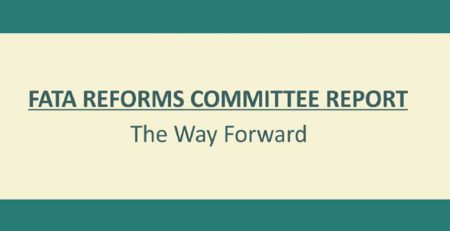Should Pakistan Abolish or Retain Capital Punishment?
Arguments for Abolition
The following arguments are frequently quoted in favor of abolition: (1) the death penalty is racially biased, (2) it is primarily the poor who get executed, (3) the penalty claims innocent lives, (4) it is arbitrary and unfair, (5) the mentally ill are executed, (6) it costs more than alternative punishments, (6) it defies international human rights standards, and (7) it does not deter crimes.[31]
The first five of these arguments relate to the weaknesses of the implementation system and are in fact facets of the same assertion. They also reflect a specific historical perspective. Racial discrimination, for example, is cited with the American experience in mind, particularly its history of prejudice against African Americans. If they can make an argument for abolition of a specific kind of sentence, then the same argument applies to other punishment’s too. Poor execution and flaws in implementation can never be made a basis for abolition of a law per se. Irregularities, corruption, injustice and discrimination are quite frequently reported in the structures and practices of the police, judiciary and executive agencies, especially in a number of developing countries. The entire framework of police, judiciary and prisons would have to be done away with, at least in these countries, if these arguments are accepted.
As to the comparative cost of the death penalty and its advised alternative, such as imprisonment for life, statistics and findings may and do differ. It can justifiably be argued that keeping and maintaining a person in a prison for a protracted period costs much more than execution. Moreover, the monetary aspect of the punishment may be cited as an argument by those who already endorse the idea of abolition but it can never pose a serious concern in a society where people believe that capital punishment for grave offenders is more likely to protect society. Furthermore, the cost of execution claimed by the abolitionists includes investigation, trial, appeals and incarceration and additional expenses, and this, in fact, reflects the caution and sensitivity of state authorities in handing down capital punishment. It shows that necessary precautions are taken and all doubts removed before a criminal is sentenced to death. The capital punishment, as a result, is rarely arbitrary or unfair in civilized and developed judicial systems.
The claim that the death penalty defies international standards of human rights is based on the fallacy that a universal understanding exists regarding what these rights should be. In fact, a charged debate is under way on the global level as to the universality of human rights.[32] This point begs some elaboration.
It should not come as a surprise to anyone that even the so-called Universal Declaration of Human Rights is not seen to be ‘universal’; this was the case, even, at the time of its adoption and proclamation by the UN General Assembly in 1948. It was viewed by many to disregard the traditions, religions, and socio-cultural patterns of different communities constituting a large portion of the world’s population. Eight countries, out of total membership of 56, preferred to abstain at the time of voting. These included Saudi Arabia, South Africa and six Soviet-block countries, such as Byelorussia, Czechoslovakia, Poland, Ukraine, USSR and Yugoslavia.[33] Other Muslim countries like Sudan, Iran and Pakistan[34] and Muslim populations and communities have been continuously expressing their concerns regarding certain provisions of the declaration. The Islamic Council of Europe, in its International Islamic Conference held in Paris in September 1981, proclaimed an alternative version of human rights in Islam. Setting forth the Islamic concept of the right to life, it provides: “… no one shall be exposed to injury or death, except under the authority of the law.”[35] Muslim states, for the same reason, adopted an alternative document, known commonly as the Cairo Declaration on Human Rights in Islam, to express their interpretation of human rights. Article 2 (a) of the said Declaration says: “it is prohibited to take away life except for a Shari‘ah-prescribed reason.”
The claim of universality of human rights cannot, therefore, hold good, and is therefore not a valid defense for abolition of the death penalty.
The important question that remains to be answered is whether the death sentence is or is not an effective deterrent for crimes. This issue is central to the discussion as one of the primary aims of any penal system, and of each of its component punishments, is to ensure the highest possible protection of and peace in society through a reduction in the frequency of crimes.[36] The effectiveness of a penalty is, therefore, most often linked to its actual ability to deter potential criminals and reduce the crime rate.
Owing to its centrality, this aspect of the issue has been discussed at length on every concerned level. As often happens in hotly contended debates, a clear yes or no answer has not emerged. Studies have led to dissimilar and often conflicting results.[37] The evidence produced regarding the deterrent effect of capital punishment has depended on the type of study carried out, specifically whether time-series and panel data have been used or cross-sectional data, and the effects of publicity. It should also be underscored that the effects of a specific social factor on society cannot be determined precisely and conclusively. Each social factor is inseparably connected with a host of other phenomena. Factors like poverty, despair, urbanization, economic and social conditions, governance, law and order and effectiveness of judiciary as well as media play their respective roles in setting the patterns in a society. Statistics and studies, therefore, may and do differ, and evidence both for and against the death penalty is enormous.
In a recent study to analyze the deterrent effect of the death penalty, Hashem Dezhbakhsh and Joanna M. Shepherd have used panel data of 50 American states for 1960-2000. Their findings were published in an article titled “The Deterrent Effect of Capital Punishment: Evidence from a Judicial Experiment.”[38] The analysis is based on comparison of murder rates immediately before and after changes in state’s death penalty laws, drawing on cross-state variations in the timing and duration of the moratorium. The authors conclude:
The Criminal Justice Legal Foundation, America (CJLF) maintains a record of citations and abstracts of all articles on death penalty deterrence published in peer-reviewed journals without filtering them. The Legal Director of CJLF, in his statement before California Commission on Fair Administration of Justice, testified:
Strikingly, of the twelve papers published in peer reviewed journals, all twelve find a deterrent effect. Such a convergence of results by different scholars using different methods all coming to the same basic conclusion is remarkable, to put it mildly.[39]
Articles presenting the opposite point of view have, on the contrary, appeared in non-peer-reviewed journals or agenda-driven websites.[40]
It is also interesting to note that some countries have had to reintroduce capital punishment in their legal systems after once abandoning it. These include many states of the USA, India, Jamaica and Sri Lanka.[41] Tunisia abandoned the practice in 2000 but reverted to it in 2008[42] when three executions were handed down during the year.[43] Philippines abolished the death penalty in 1987 but restored it in 1995.[44]
[31] Batchelder, “15 Reasons to Abolish the Death Penalty.”
[32] See, for example, Talbott, Which Right Should be Universal?
[33] Sieghart, International Law of Human Rights, 24.
[34] New World Encyclopedia, s.v. “Universal Declaration of Human Rights,” http://www.newworldencyclopedia.org/entry/Universal_Declaration_of_Human_Rights#Criticism (accessed May 5, 2009).
[35] Hussain, Islam and Human Rights, 90.
[36] Walker, Sentencing in a Rational Society, 3.
[37] CJLF, “Articles on Death Penalty Deterrence.”
[38] Dezhbakhsh and Shepherd, “The Deterrent Effect of Capital Punishment.”
[39] Scheidegger, Statement before California Commission on the Fair Administration of Justice, April 11, 2008, www.cjlf.org/deathpenalty/
ScheideggerCCFAJStatement.pdf (accessed April 24, 2009).
[40] Ibid.
[41] Wikipedia, s.v. “Capital Punishment.”
[42] Magharebia, “Tunisian court upholds death penalty for convicted terrorist,” February 21, 2008, http://www.magharebia.com/cocoon/awi/xhtml1/en_GB/
features/awi/newsbriefs/general/2008/02/21/newsbrief-01 (accessed April 29, 2009).
[43] Amnesty International, “Tunisia: Court’s decision to uphold death sentence.”
[44] David Lamb, “Rapist’s Execution is First in Philippines Since 1976,” Los Angeles Times, February 6, 1999, http://articles.latimes.com/1999/feb/06/news/mn-5451 (accessed April 29, 2009).











